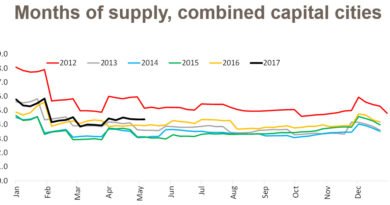7 Important tax tips for property investors
There are some differences between property investors and non-investor homeowners when it comes to taxation obligations. If you’re planning to engage in some property investments, it is crucial to get well informed about all taxes which include capital gains tax (CGT) and land tax. Keep in mind that homeowners don’t need to take care about those, but you as a property investor should. There are some important questions to ask before you start investing in property, and text below will try to provide you with all needed answers.
How to maximise tax deductions?
In case you want to invest in property in Australia, make sure to get well educated about all possibilities for tax return. In order to claim deductions for rental property, you’ll need to gather complete documentation and invoices. Think about all annual expenses and try to get some deductions. Keep your eyes on expenses for cleaning, electricity, gas, insurance, land tax, repairs, and maintenance. In addition, you should also keep a record of real estate management fees, reasonable travel expenses, interest on the investment loan and advertising for tenants.
Are building, construction and borrowing expenses deductible?
Unfortunately, those aren’t usually deductible, but there is a possibility to claim them under the special building write-off regulations. Basically, if the property in question was built after September 15th in 1987, you may try to claim some portion of construction costs which were unclaimed once you bought the property. For every year, there is a chance to write-off 2.5%, for a maximum of 40 years. Of course, you’ll need to provide the proof of construction expenses. You can get this from a previous owner, or hire a professional to work on an estimate.
What is not deductible?
There are some expenses you can’t get refunded, but those can be included in the cost base of a property if sold afterward and used for capital gains tax purposes. Besides the original property expenses, think about including the following in the cost base:
- Valuer’s fees on acquisition
- Legal costs that are acquired once the property is purchase dor sold
- Stamp duty upon purchase
- Auctioneer’s fee
- Expenses for advertising
- Investments on improvements which can increase the value of the property
Does every investment property subject to CGT?
There is a possibility to avoid capital gains tax just in case your investment property was your main residence. It will be treated as such for up to six years after it stopped to be your family home. For these six years, you’ll be able to retain property’s CGT-exempt status. Before you decide to treat your property as CGT-exempt, make sure to consult with professional tax specialists just to make sure you’re eligible for this kind of tax deduction.
What to do if the sale of the property is subject to CGT?
If you decide to sell a rental property which was bought on or after 19 September 1985, keep in mind that you might be liable to take care of CGT. Once you sell the property, there are two possible incomes. First, you’ll get a capital gain in case the sale income is greater than the property’s cost base. On the other hand, capital loss will be noted if the sale profit is less than the cost base.
In case you realized a capital gain, it is good to apply all capital losses during the year of sale. This should be done because you might be eligible to get a 50% CGT discount. This reduction is only possible if you owned the property for at least one year.
How to invest in property via an SMSF?
Before you decide to invest via the self-managed super fund, get prepared for all the risks, expenses, and benefits coming your way. Since the cost of property will probably be very high, you as a trustee should seriously consider adding diversification in your overall SMSF strategy. This move will help you to minimise investment risk in case one asset class outperforms.
If you decide to go with SMSF, keep in mind that maximum tax rate on net rental profit will be up to 15%, and once SMSF is in pension mode, the tax rate will go to 0%. The same rule goes for any deductions for losses as well. Of course, in order to be more tax-effective, it is probably for the best to avoid investing via SMSF.
What are the common taxation pitfalls?
A lot of investors put different properties under the same loan. In case both you’re home and rental property is funded with the same mortgage, give your best to structure the loan the way it is easy for ATO to assess which part of it is related to the rental property. Keep in mind that you won’t be eligible for a tax deduction for the interest you pay after the property is not rented anymore. This rule goes for the part of the loan you used for private needs as well.
Make sure to keep a detailed record of all your annual expenses, and hold to that list for at least 3-5 years. Keep in mind that all costs should be added to the cost base of the property, so you can have an insight in all capital gains and losses. This knowledge will help you to get the most of your tax obligations. If all of this sounds a bit complicated and hard to get, feel free to consult a professional and learn about the best practice.




